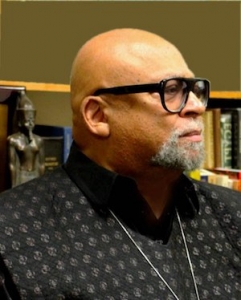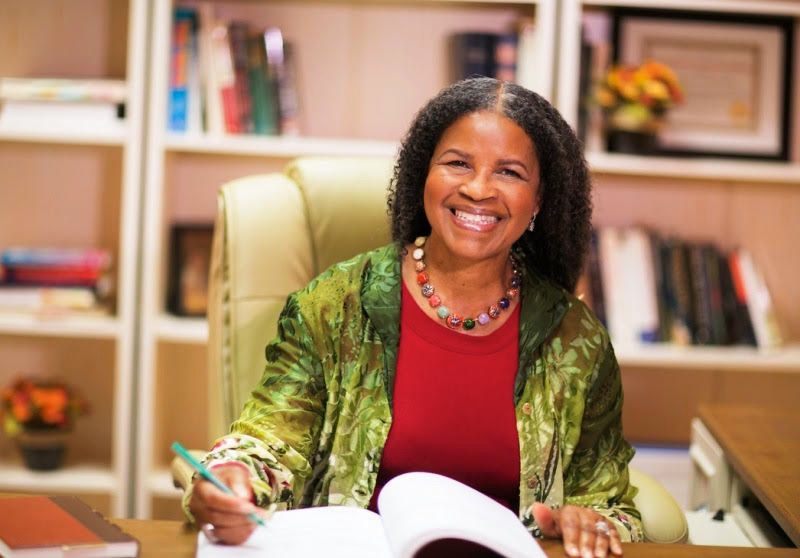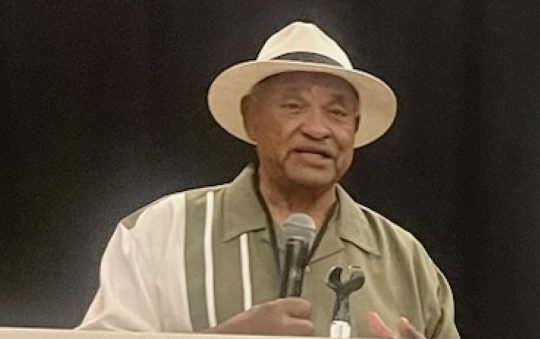
In the current context, there is overwhelming support for Israel and its declaration of total war on Gaza, Palestine and its vow to destroy the Islamic Resistance Movement, Hamas, after its military wing, the Al Qassem Brigades, attacked Israeli towns and military bases indiscriminately killing and capturing civilians and soldiers.
In committing itself to total war, Israel has engaged in continuous saturation bombing, killing, wounding and maiming thousands of innocents in their homes, schools, hospitals, mosques, churches, ambulances, cars, streets, UN shelters, refugee camps, and forcing massive evacuations, not allowing for any place of safety or sanctuary. Indeed, one government minister said that, “Palestinians have one of three options: only either to immigrate or accept a life of subjugation to Israelis, or die.”
Moreover, Israel has cut off food, water, fuel and electricity using these as weapons of war without serious challenge from the U.S. or others. Thus, in such a context, there is precious little space to speak of the catastrophic effect this total war has already had and will continue to have on the Palestinian people.
We should offer rightful and necessary condemnation of the killing in mass or singularly innocent and unarmed civilians whether Israelis, Palestinians or others, but the key question is one of moral consistency and inclusiveness in our concern. In a word, we know the consideration Israel has, but where do the Palestinian people fit in this arc and agony of moral concern and care?
If it is clearly wrong to kill innocents in mass in Israel, is it not also wrong to engage in indiscriminate saturation bombing of the civilian population of Palestine, killing, wounding and maiming them in even greater numbers and not distinguishing between civilian and soldier? Are we to mourn Israeli losses and celebrate the suffering of Palestinians or have an inclusive empathy for all?
And can we morally condemn indiscriminate killing of one people and tolerate, justify and support it against another people without any sense of moral contradiction, hypocrisy or concern? And yet, this total war and collective punishment which are both prohibited by basic moral standards and international law and are crimes against humanity as well as against the Palestinian people, have received political, diplomatic, financial, media, and military support from the USA with similar support from the White western world.
In this case and prior ones, there is a tendency to indict a whole people for acts by a military group or single person. Indeed, the President of Israel has said, “It is an entire nation out there that is responsible.” But even before this recent immoral and inhumane claim, other governmental officials had said all Palestinians in Gaza are the enemy, including “its elderly and its women, its cities and its villages, its properties and its infrastructure,” called them “beasts” and said that Israel was ready to “carry out a Shoah” against Gaza, using the Hebrew word for holocaust, a demonizing and dehumanizing position bound to have catastrophic, if not genocidal, consequences.
In the midst of the bloody and greatly destructive war in Vietnam called a war against the Viet Cong or the National Liberation Front, Dr. Martin Luther King asked us to “bring within the field of our moral vision” even our enemy and not to deny their equal status, needs and rights as human beings. This is urgent and imperative here in this climate of calls and support for the waging of this total war of retaliation and revenge and the preponderance of force and capacity for almost unlimited violence and support on the side of Israel with no serious restraint.
Nana King tells us that “many people fear nothing more terribly than to take a position which stands out sharply and clearly from the prevailing opinion.” But a person of moral courage feels compelled to speak truth to the people and to power, especially for the voiceless. Thus, he stood up in the midst of silence and called out his country during its wrongful and devastating waging of war against Vietnam, using its preponderous of power against “a poor, weak nation.” Like King and the best of our culture from which he draws, we must bring Palestine and the Palestinian people in the field of our moral vision and concern. And we must speak up and stand up in solidarity with Palestine and the Palestinians for several reasons.
First, we must do it because we are morally obligated and compelled to reaffirm and respect the humanity of the Palestinian people and defend their equal human rights to life, freedom, justice and security. Indeed, it’s we, African people, who first introduced in the moral vocabulary of humanity that humans are images of the Divine and bearers of dignity and thus, worthy of the highest respect as our sacred text, The Husia, teaches.
We, thus, reject and resist the denial of their dignity and identity, the immoral and inhumane designation of them as “a beastly people” or “human animals” in current Israeli right-wing racist conversation and that of earlier government officials who denied their existence as Palestinian people and even right-wing racist religious leaders who call them animals. And we do likewise for all people.
The Palestinians also are brought in the field of our moral vision and in the circle of our solidarity as a fellow oppressed and struggling people under brutal occupation for decades, under a system that major international and Israeli human rights groups have designated as a regime of apartheid. Surely, it is the sacred teachings of our honored ancestors in The Husia, that say we are morally obligated to bear witness to truth and set the scales of justice in their proper place among those who have no voice, the voiceless, devalued, dispossessed, disempowered, the vulnerable and oppressed.
Dr. King reaffirms this ancient and essential teaching saying, “We are called to speak for the weak, for the voiceless, for the victims of our nation and for those it calls ‘enemy’, for no document from human hands can make these humans any less our brothers” and our sisters. Also, the Palestinian people come within the field of our moral vision because they have been valuable and valued allies in the continental African liberation struggles, and as African peoples, we are morally obligated to reciprocate and offer them support in their liberation struggle. As Nana Nelson Mandela stated, we identify with the Palestinian people and their struggle “because just like ourselves, they are fighting for the right of self-determination.”
We bring Palestine and the Palestinian people in the field of our moral vision, the arc of our moral concern and the circle of our solidarity in our shared human right of resistance to evil, injustice and oppression. We must support their righteous and relentless struggle to free themselves and be themselves, to build their own country and state, to live in peace with all their neighbors, and to forge a good and meaningful life and future for their children, themselves and all those who come afterwards.
They cannot be denied the right of resistance, the equal human rights to free and defend themselves even as we concede these rights to everyone as a matter of natural and international law, but no one has a right of oppression or to deny others the human rights they rightly claim for themselves.
Dr. King tells us that we must have mutual respect for each other’s equal humanity and equal human rights if we are to build the good world, we all want and deserve to live in. And he tells us that this choice of advocating and struggling for the mutual respect of each other’s humanity and human rights can at times be difficult, demanding, and even dangerous, but he said we are morally compelled to choose. Indeed, he says “The choice is ours, and though we might prefer it otherwise, we must choose in this crucial moment of human history.”
Dr. Maulana Karenga, Professor and Chair of Africana Studies, California State University-Long Beach; Executive Director, African American Cultural Center (Us); Creator of Kwanzaa; and author of Kwanzaa: A Celebration of Family, Community and Culture and Introduction to Black Studies, 4th Edition, www.OfficialKwanzaaWebsite.org; www.MaulanaKarenga.org.







